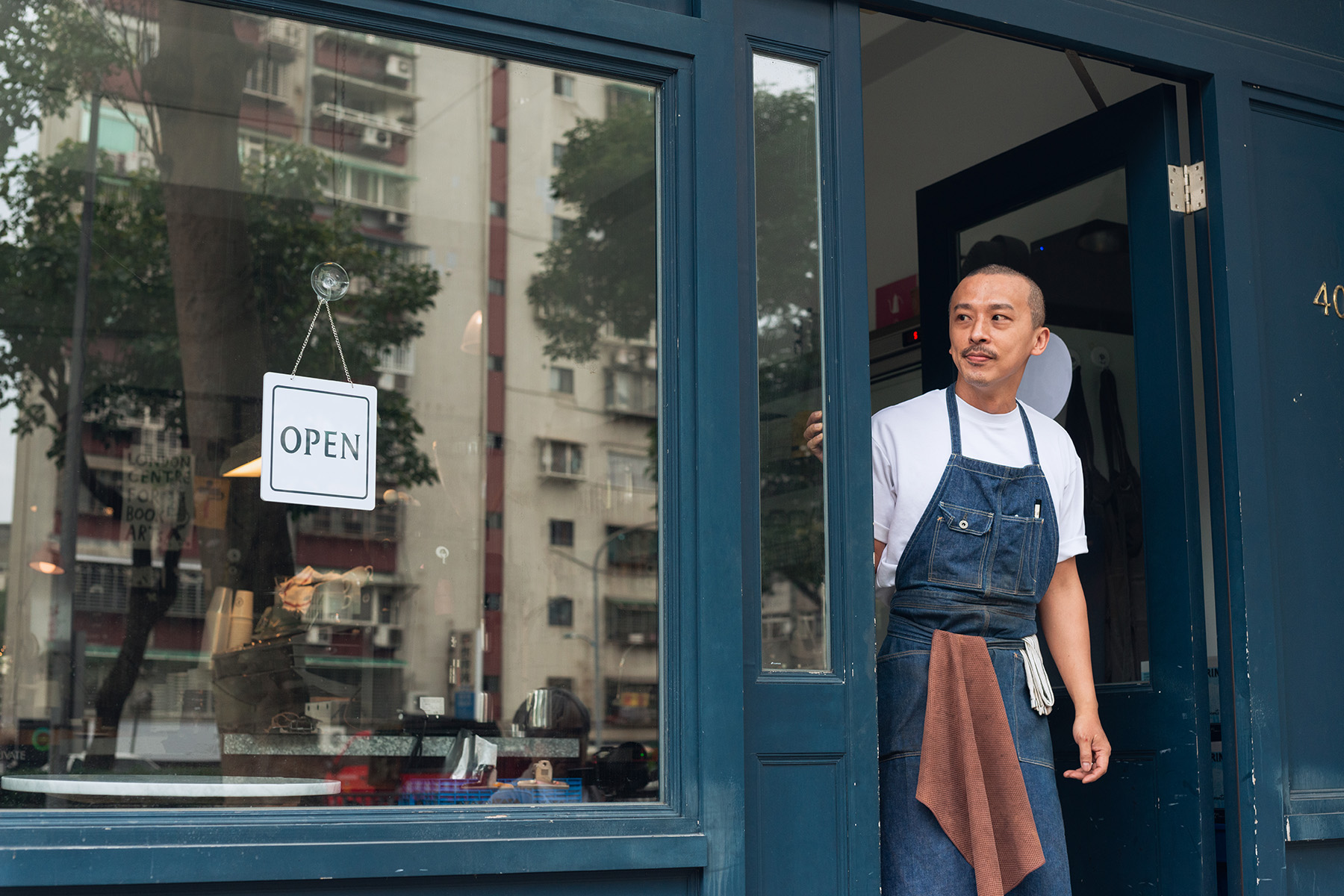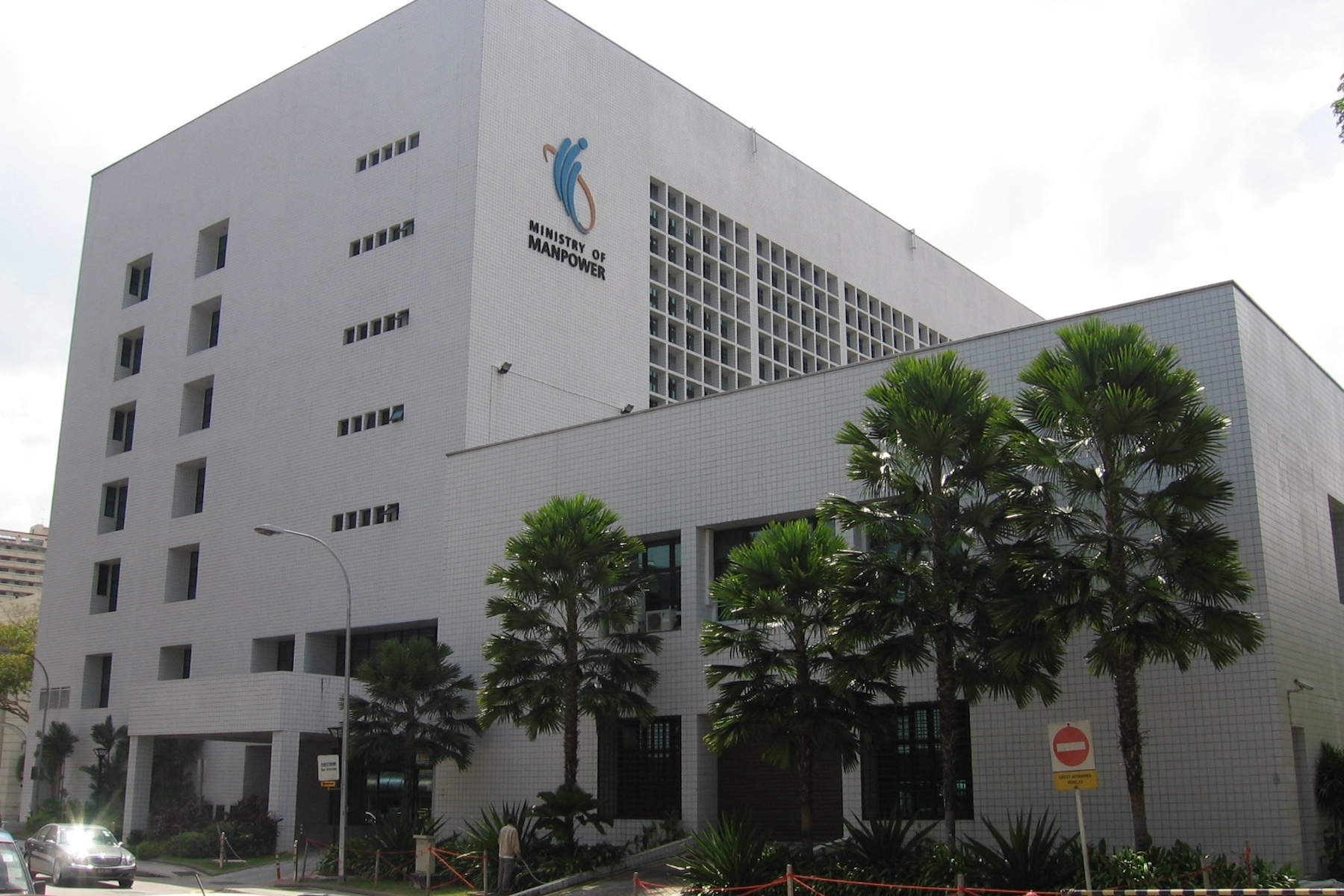Singapore is something of a magnet for international professionals thanks to its thriving economy, good quality of life, excellent healthcare and education facilities, and warm climate. However, this means that competition for good jobs is high. Therefore, it pays to prepare properly and follow the correct procedures.
Learn all about jobs in Singapore by reading the following sections on:
- Working in Singapore
- Requirements to work in Singapore
- How do you find jobs in Singapore?
- Can you work as an English teacher in Singapore?
- Self-employment and freelancing in Singapore
- Traineeships, internships, and volunteering in Singapore
- How do you apply for a job in Singapore?
- Can you access any support while job hunting?
- Tips on finding a job in Singapore
- Starting a new job in Singapore
- Useful resources
Working in Singapore
What can you expect from the job market in Singapore?
One of the four ‘Asian Tiger‘ economies along with Hong Kong, South Korea, and Taiwan, Singapore has long been a popular destination for international professionals searching for good career opportunities. It’s a free-market economy where multiple global companies do business, from healthcare to banking multinationals.

Singapore’s job market is open to both residents and internationals. The country has a low unemployment rate of 2.1% (2022), well below global and regional averages. According to the government careers portal, the industries with the most exciting prospects in 2023 are:
- Agritech
- Aviation
- Banking and financial services
- Construction
- Green infrastructure
- Healthcare
- Logistics and supply chain
- Maritime and shipping
- Pharmaceutical and biotech
- Tourism and hospitality
Large global companies with a base in Singapore include:
- AXA
- Citibank
- GlaxoSmithKline
- Johnson & Johnson
- Siemens
Job vacancies
The Ministry of Manpower (MoM), the government department that deals with employment-related issues, publishes information on job vacancies and skills shortages in Singapore. According to the latest figures (Mar 2023), there are 99,600 job vacancies in the country. Industries currently experiencing skills shortages in Singapore are:
- Agritech
- Financial services
- Green economy
- Healthcare
- IT
- Maritime
What is the average pay in Singapore?
According to the MoM, the average gross pay in Singapore for full-time residents was S$5,070 in 2022. This includes employer social security contributions. The financial comparison site SingSaver offers information on average gross salaries across a range of industries.
Singapore has no national minimum wage other than for cleaners and security guards.
What is the work culture in Singapore?
Workplace culture in Singapore can vary greatly due to the wide variety of business types, from large multinationals to small family-owned businesses. In general, you can expect a strong emphasis on order, workplace rules, and respect for company values. Hierarchy can be age-based, especially in family businesses, with older employees commanding respect.
Singaporeans tend to have a strong work ethic and value the team over the individual in the workplace. Punctuality is highly valued, and businesses in Singapore are relationship-oriented. People tend to prefer taking time to develop strong and lasting ties with business partners. The dress code is typically smart and conservative.
Singaporean labor laws and rights
The Employment Act of Singapore is the basis for the country’s labor laws. However, parts of the act only apply to those earning S$2,600 a month or below (or S$4,500 for manual laborers). Employee rights include a maximum working week of 44 hours, the right to annual leave and sick pay, and benefits such as maternity pay for those who meet requirements.
There is no statutory notice period for jobs in Singapore, but it should be the same for both employer and employee. Employers do not have to provide health insurance for most expat employees, although many offer it. Citizens and permanent residents get coverage through the statutory health insurance scheme.

The MoM has a list of resources on employment practices, rights, and conditions.
Requirements to work in Singapore
Do you need a work visa?
All foreign workers need a valid work visa or permit to start working in Singapore. In general, you will need a job offer before getting a visa.
There are several different types of work visas for Singapore, including:
- Employment passes for skilled workers and high-earners
- Work permit for migrant workers
- Work permit for foreign domestic workers
- S Pass for mid-level skilled workers
- Work permit for performing artists
The employer, rather than the employee, applies for the work visa through the MoM.
What are the language requirements to work in Singapore?
If you’re an English speaker, you won’t need to worry about language requirements for working in Singapore, as there are plenty of English-speaking jobs. Firstly, it is one of the country’s four official languages, along with Malay, Tamil, and Mandarin. Furthermore, Singapore ranks 2nd on the 2022 English Language Proficiency Index – the majority of the population speaks English to a reasonable level, with nearly half of people using English as a first language.
However, if you’ll be working with a lot of locals, it might be worth learning a little Malay or Mandarin. While you won’t need it during the regular course of business, it can be helpful in building camaraderie with your colleagues and make it easier for you to acclimatize with the local culture. It may also enhance your ability to find work in Singapore.
If English or one of the other three native Singaporean languages is not your first language, you may have to prove your English proficiency, for example by obtaining an IELTS certificate.
Does Singapore require particular qualifications to work in the country?
Singapore has a number of professions where you need a specific license to operate in the country, for example, as a lawyer, doctor, or accountant. You can search for details of licenses by industry on the government’s GoBusiness portal. The individual sector licensing bodies usually deal with matters such as transferring foreign qualifications.
Tax and social security numbers in Singapore
Everyone living and working in Singapore needs an identification (ID) number for tax and social security purposes. For citizens and permanent residents, this is the National Registration Identification Card (NRIC) number. Other long-term residents, for example, those moving to Singapore for work, must obtain a Foreign Identification Number (FIN).

You should apply for your FIN from either the MoM or the Immigration and Checkpoints Authority (ICA) as soon as you arrive in Singapore. Once you have done this, you will receive an ID card with your unique FIN number on it. This consists of the letter M followed by seven digits and another letter.
Your FIN will remain the same for as long as you stay in Singapore unless you become a citizen or permanent resident, in which case you will exchange your FIN for your NRIC.
How do you find jobs in Singapore?
General job search sites
There are many websites that advertise jobs in Singapore across a variety of industries. These are easy to use, and most have search functions where you can specify preferences to find opportunities most suitable for you. Websites include:
- Adzuna
- FastJobs
- Foundit (formerly Monster)
- Glassdoor
- GrabJobs
- Hays
- Indeed
- Jobscentral
- JobsDB
- JobStreet
- Michael Page
- ST Jobs
Government job sites
The Singaporean government has its own job search engine on the MyCareersFuture portal. You can look for different types of jobs, including full-time, part-time, or temporary. You can also set your salary requirements and browse jobs that offer various forms of government support.
Specialist job websites
If you are looking for a particular type of job in Singapore, the following sites may be useful:
- Careers@Gov – public sector jobs
- Cultjobs – jobs in creative industries
- e27 – tech/startup jobs
- eFinancial Careers – finance sector jobs
- GradConnection – graduate jobs
- GradSingapore – graduate jobs
- Tech in Asia – tech jobs
Recruitment agencies
If you’re looking for extra support in landing that ideal role, you can use a recruitment agency. These agencies build close relationships with many large and well-established employers.
However, they tend to have fewer career opportunities on their books than job search sites, so you might end up limiting your options slightly. You should also check upfront for details of fees before signing up with an agency.
Reputable recruitment agencies in Singapore include:
- 3C RGH
- Kerry Consulting
- Manpower
- Morgan McKinley
- PERSOLKELLY
- Randstad
- Robert Half
- Robert Walters
- Trust Recruit
Networking and social media
While job search sites and recruitment agencies are obvious avenues when looking for jobs in Singapore, don’t overlook the benefits of networking and building your contact base. Some of the best opportunities can come from casual chats at a professional event or perusing professional networks.
LinkedIn and Meetup are both good platforms for connecting with people in your field and finding out about relevant groups, events, and networks in your area. In addition, many big companies now channel a lot of their communications via social media, so they can be a good place to find out about emerging opportunities as soon as they are announced.
Speculative job applications
Larger companies also tend to advertise positions on recruitment pages on their own websites. If there are particular firms you’re interested in working for, keep an eye on these pages or their news sections.
It’s also fine to hit a company up with a speculative application, advertising your skills and knowledge while enquiring about possible job openings. Make sure to find the right person on the website to address your application – usually a careers or recruitment email address or a named person from your desired department. Finally, do your research. In addition to relevant skills, find out what values and personality traits the company looks for in potential employees.
Can you work as an English teacher in Singapore?
As Singapore is a country with English as one of its main languages, there are plenty of opportunities for teachers of English in the country. However, as there is a large percentage of English speakers, there are fewer ESL (English as a second language) teaching jobs than you might find in neighboring countries such as Thailand and Malaysia.

It also means that the thresholds for qualifications and experience are typically higher. You are more likely to find jobs in primary schools, secondary schools, and universities rather than language schools, although ESL opportunities do exist. In general, you need a degree-level qualification and an ESL certificate, such as Teaching English as a Foreign Language (TEFL) Level 5. Those with standard teaching qualifications can look for work teaching other subjects in English, such as maths, science, or history. It’s also possible to do teacher training through the National Institute of Education.
You can search for English teaching jobs on websites like Tesol and Go Overseas. Look for general English-language teaching jobs and ESL jobs on Serious Teachers. You can also try the British Council for English teaching opportunities in Singapore. Salaries for these jobs tend to range between S$1,000 and S$4,000 a month.
English teaching jobs
You can find English teaching jobs in Singapore in:
- Public schools – you’ll need approval from the Ministry of Education (MoE), but you can expect a salary of between S$1,500–3,000 a month for full-time work in a public school.
- Private schools – these schools have smaller classes and tend to pay more.
- International schools – you’ll find smaller classes, a more multicultural environment, and salaries of around S$2,500 a month. However, the work can be more challenging, and some schools ask for postgraduate-level qualifications.
- Universities – you will typically need a postgraduate-level qualification to teach at a university.
- Private tutoring – This is an option if you want to work freelance or start your own business.
- Online – This freelance option allows you to set yourself up to offer lessons to Singaporean nationals and students outside of Singapore.
Self-employment and freelancing in Singapore
One alternative to looking for a job in Singapore is to set up your own enterprise and enjoy the fruits of being your own boss. Approximately 12.55% of the population in Singapore is categorized as self-employed (2022). This includes freelancers, who do contract work for others, and those who set up and run their own registered business.
Rules are fairly stringent around freelancing in Singapore. Only citizens and permanent residents may work in this way. To engage in self-employment as an expat, you will need an EntrePass work visa. This visa allows entrepreneurs to start up their own business. However, it must be an incorporated business that exists as its own legal entity, meaning that legally, you will be an employee of your own enterprise rather than self-employed.
Businesses in Singapore need to register at the Bizfile portal, part of the Accounting and Corporate Regulatory Authority (ACRA). If you are interested in setting up a business in Singapore, you can look for support on networking sites such as TiE Singapore and Startup Grind Singapore.
Traineeships, internships, and volunteering in Singapore
Singapore’s reputation as a global business hub means it attracts many young professionals who want to gain experience with local firms and build networks in the country. Students and others interested in work experience in Singapore can apply for a number of different visas in the country, including:
- Work Holiday Pass (under the Work Holiday Program) – for students and young professionals aged 18–25, valid for six months
- Training Employment Pass – short-term three-month visa for practical work training in Singapore
- Training Work Permit – six-month visa for unskilled and semi-skilled workers to train in Singapore
There is also another Work Holiday Pass program specifically for Australian students and graduates aged 18–30.
You can search for internships in Singapore on websites such as:
Look for great volunteering placements on:
- giving.sg
- GoOverseas
- SG Cares
- volunteer.gov.sg (government volunteering platform)
How do you apply for a job in Singapore?
Job applications in Singapore are similar to many other countries. In other words, you’ll probably first have to complete an online application form or submit a CV/resume with a cover letter.

If your application is successful, you’ll usually get invited for an interview. This might be an initial video or phone conversation if you live overseas. However, many big companies may want to meet face-to-face or invite potential employees for a practical assessment ahead of recruiting. If this is the case, the company will arrange a short visit visa for work-related purposes for any foreign applicants. See how to prepare for interview on MyCareersFuture.
As you need a job offer before applying for a work visa in Singapore, the process of finding employment in the country can be quite time-consuming.
CVs and letters of motivation in Singapore
Although the requirements vary from company to company, most organizations will ask for the following on your resume:
- Contact information
- Qualifications and skills
- Professional experience
- Awards and honors
Additionally, if you are applying for a job in academia or a profession that requires it, you should mention your academic history, publications, scholarships, licenses, and professional associations.
Make sure that your cover letter or personal statement includes the key information asked of you in the job description and applicant specification and explains why you are the ideal candidate for the role. Check Resume Writer for good CV templates and Kick Resume for cover letter samples.
Can you access any support while job hunting?
Singapore has a social security system that offers protection to its population. However, this is only available to citizens and permanent residents. Furthermore, it doesn’t include unemployment benefits. Therefore, you will have to rely on whatever personal funds you have while job hunting in Singapore unless you have taken out some form of private insurance.
If you’ve just graduated on a student visa in Singapore, you can apply for a work-related visa to stay in the country and seek employment. This will give you a limited period to find a job.
The MoM has information on skills training opportunities in Singapore, although some are for nationals and permanent residents only. A good resource if you’re after support while looking for work is MyCareersFuture. This government agency offers a Careers Connect service, job search guidance, and careers events.
Tips on finding a job in Singapore
No matter what industry you work in, you’ll face stiff competition when it comes to seeking employment in Singapore. This means you’ll need to do what you can to stay ahead of the field. Here are a few suggestions:
- Research reputable companies operating in your area. This will give you an idea of what opportunities may arise, what firms are looking for, and what to expect from the business culture in Singapore.
- Don’t put all your eggs in one basket when it comes to job-hunting methods. This doesn’t just mean looking on more than one job website. Think about broadening your search by contacting a couple of recruitment agencies, sending off speculative applications, and joining useful networking groups.
- Make sure you have a good profile on websites such as LinkedIn. This could lead to companies or professionals approaching you, which lessens your job search workload.
For more tips, read more on looking for work abroad and top tips to find an expat job.
Starting a new job in Singapore
Once you have found and started a new job in Singapore, there are a few additional things you’ll need to think about. Unless you get permanent residence in the country, which you can only do after living there for several years and meeting various other conditions, you won’t be entitled to services such as public health insurance, social security, or state pensions.
However, many employers in Singapore offer these as private benefits. In fact, if you’re in Singapore on an S work visa, your employer has to provide you with private health insurance. It’s worth taking note of what kind of benefits package you have. You can then consider taking out private insurance or pension coverage to fill any gaps.
Useful resources
- Ministry of Manpower (MoM) – government ministry in charge of employment-related issues in Singapore
- MyCareersFuture – government portal with information on jobs and support in Singapore








